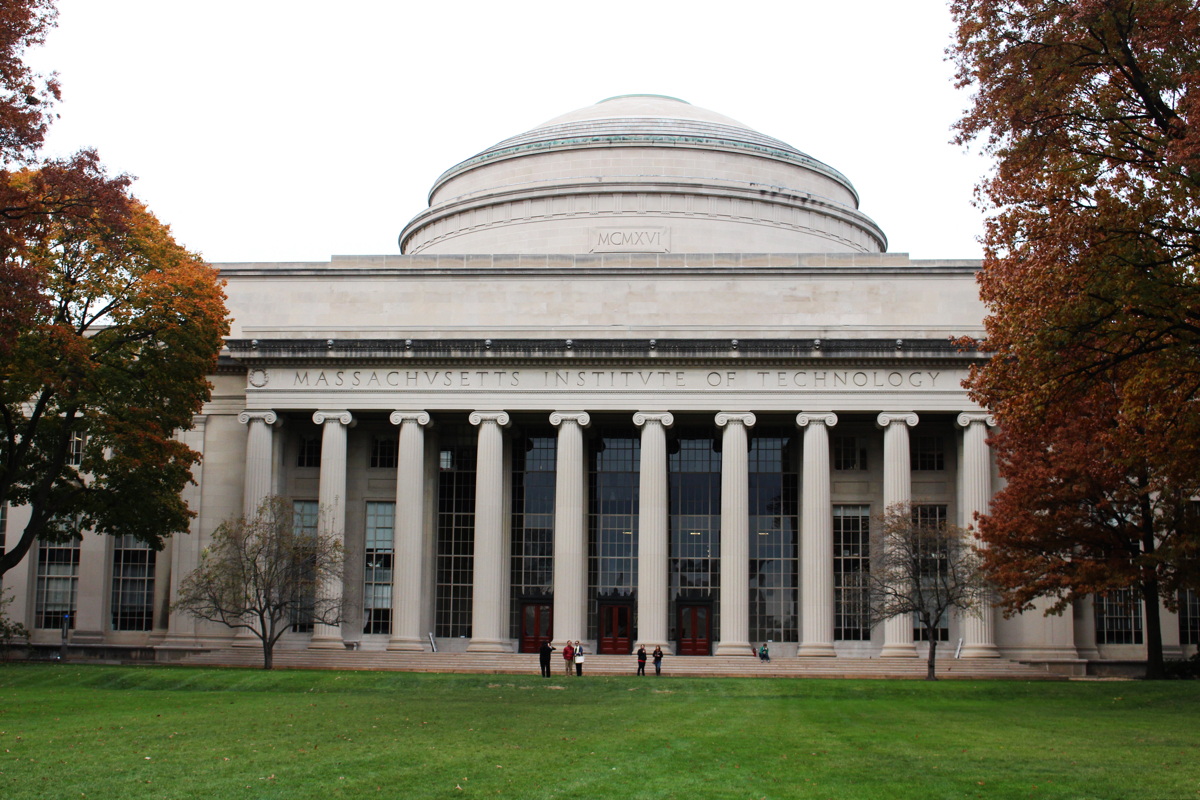MIT Profs Oppose Trump Appointments, Stand Up for Science in Letter

PHOTO BY MARGARET BURDGE
Nearly 400 professors at MIT have signed an open letter opposing Donald Trump’s Cabinet picks and defending “fact- and reason-based objective inquiry”—a rebuke of a new administration they fear will be hostile to science.
In the letter, which was made public Tuesday, the educators also say they oppose hateful speech and the targeting of minorities. They insist the message is a non-partisan one.
“The President-elect has appointed individuals to positions of power who have endorsed racism, misogyny and religious bigotry, and denied the widespread scientific consensus on climate change,” the letter, posted to mitvalues.org, reads. “Regardless of our political views, these endorsements violate principles at the core of MIT’s mission. At this time, it is important to reaffirm the values we hold in common.”
Here is the statement in full:
The President-elect has appointed individuals to positions of power who have endorsed racism, misogyny and religious bigotry, and denied the widespread scientific consensus on climate change. Regardless of our political views, these endorsements violate principles at the core of MIT’s mission. At this time, it is important to reaffirm the values we hold in common.
We, the undersigned faculty at MIT, thus affirm the following principles:
- We unconditionally reject every form of bigotry, discrimination, hateful rhetoric, and hateful action, whether directed towards one’s race, gender, gender identity, sexual orientation, religion, national origin, disability, citizenship, political views, socioeconomic status, veteran status, or immigration status.
- We endorse MIT’s values of open, respectful discourse and exchange of ideas from the widest variety of intellectual, religious, class, cultural, and political perspectives.
- We uphold the principles of the scientific method, of fact- and reason-based objective inquiry. Science is not a special interest; it is not optional. Science is a foundational ingredient in how we as a society analyze, understand, and solve the most difficult challenges that we face.
For any member of our community who may feel fear or oppression, our doors are open and we are ready to help. We pledge to work with all members of the community – students, faculty, staff, postdoctoral researchers, and administrators – to defend these principles today and in the times ahead.
The public statement comes a day before Steve Bannon, the former Breitbart head tapped to be Trump’s chief strategist, is scheduled to appear at the Harvard Kennedy School for a discussion about the campaign. Bannon, a figure beloved by white nationalists, has called his website “the platform of the alt-right.” A demonstration in opposition to his appearance is planned for late Wednesday afternoon (more than 3,000 people have said on Facebook they are interested in attending).
Organizers, though, say the letter—and a campaign to get faculty members to sign it—has been in the works for weeks. It “had no connection to Bannon’s visit,” says MIT Prof. Nancy Kanwisher, who co-wrote the letter with MIT Prof. Roger Levy and other colleagues.
“It is our sincere hope that this is raised at the two-day IOP event at the Harvard Kennedy School,” adds Sarah Elizabeth Schwettmann, an MIT PhD student who helped write the letter.
On the website’s “about” page, the faculty members say they take issue with Trump appointees Jeff Sessions and Michael Flynn. They also condemn his selection of Myron Ebell, a prominent climate change denier, to lead the transition team for his Environmental Protection Agency. Trump, himself, has called global warming a “hoax” and said he would back out of the Paris climate agreement.
“Public policy discussions have moved away from facts to conjecture and opinion,” writes economics Prof. Jonathan Gruber, in a prepared statement. “The only way to reverse this dangerous trend is to reaffirm the scientific method and its sound application to the important policy issues of the day.”
Just after the election, MIT President L. Rafael Reif wrote a similar open letter to the MIT community. “Whatever may change in Washington,” he wrote, “I believe there is great power in remembering that it will not change the values and the mission that unite us.”


